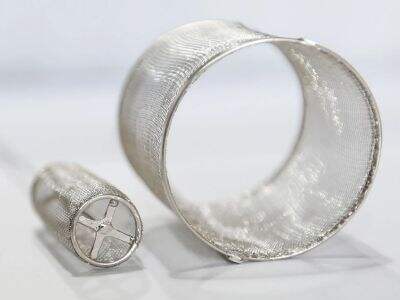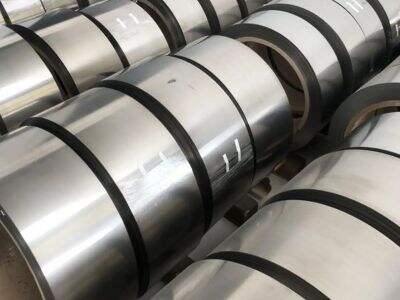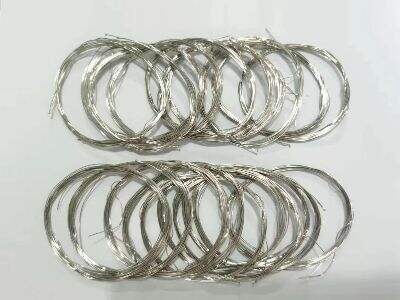For industrial processes involving high temperature measurements, it is very important to pick the correct thermocouple material in order to obtain accurate and reliable temperature readings. It is known that different materials have different characteristics which may cause or affect their performance under severe heat conditions. Here, At Kuaike Precision Alloy, we have to know the importance of choosing the right thermocouple material for high temperatures and how it can serve in optimizing industrial performance
Maximizing on The Best Thermocouple Material for High Temperature
Determination of the best thermocouple material for high temperature is crucial in industrial process performance. Type K thermocouples are by far the most popular of all the different types that are used for higher temperatures and are constructed from Chromel and Alumel. Type K is the most common type of thermocouple with a wide temperature range, high sensitivity and durability. Another widely used high-temperature thermocouple material is Type N (thermocouple) type, a nickel-based alloy. Thermocouples Type N provides NIST traceable calibration; and are used in industrial process control for high temperature applications

Studying the Advantages of Using Perfect Thermocouple Material for High Temperature
The employment of an optimal material thermocouple for the high temperature provides many advantages to industrial. For instance, the correct selection of thermocouple material can enhance the accuracy of temperature sensing and controlling in industrial applications. Furthermore, the thermocouple material of choice can provide a longer lasting and more durable thermocouple having a greater lifespan in use before replacement and servicing thereof is necessary. By choosing the right thermocouple material for high temperatures, Hescon Industries can guarantee reliable and accurate temperature readings, which means better overall performance and higher productivity. Kuaike Precision Alloy provides multiple types of high qualityP thermocouple alloy materials to the needs in industrial production, they are employed to ensure safe and reliable use under high temperature
Selecting the right thermocouple material is critical to ensure accuracy when measuring high temperatures. In this post, we will discuss how to know which thermocouple material is applicable for high temperature use and the most used thermocouple materials for high temperatures, as well as some common problems and solutions in choosing a thermocouple material for high temperature
How to Choose the Thermocouples Material Well-Suited to High Temperature
There are some things to consider when choosing a thermocouple material for high temperature use. The first thing to consider is the temperature that the thermocouple will be subjected to. Various thermocouple materials have different temperature limits, so it is necessary to select a material that can remain serviceable in the particular temperature range
Thermocouple material accuracy and stability are other factors to be taken into account. Certain materials may perform better at elevated temperatures in terms of accuracy and stability than others, therefore it is important to specify a material with the accuracy you require
It is also important to take into account the thermo-couple material chemical affinity with the working atmosphere. Other materials can be reactive with certain chemicals or gases at high temperatures stale readings or damage the thermocouple

What is the most widely used material of the thermocouple for high temperature applications
The most common thermocouple materials used for high temperatures are Type K, Type N and type R/S: – Nickel-Chromium/ Nickel-Alumel, these can function at temperature up to 1200-1300 ºC, the accuracy is very good. Platinum/rhodium thermocouples of type R/S are suitable for temperatures up to 1600°C and have excellent accuracy and stability
Most thermocouple users have had to decide at some point which material is best for a given application
One prevalent problem associated with the selection of a thermocouple material for high temperature applications is whether or not it undergoes degradation over time, such as drift. In order to try and prevent this, a high grade thermocouple type material must be chosen which will allow for the temperature range that your process occurs in
Another problem is that the signals are subject to interference and noise in high temperature conditions.
To solve this problem, the thermocouple wires should be well shielded and no sources of electromagnetic interference in its close proximity. Choosing an appropriate thermocouple material for high-temperature sensing is critical to obtain a unambiguous temperature. Thermocouple Material Kuaike Precision Alloy supplies various high quality of thermocouple material which is designed according to the working demand at high temperature. If you take into account the temperature range, accuracy, stability and chemical compatibility with your process, it is easier to select the best thermocouple material for your purpose
Table of Contents
- Maximizing on The Best Thermocouple Material for High Temperature
- Studying the Advantages of Using Perfect Thermocouple Material for High Temperature
- How to Choose the Thermocouples Material Well-Suited to High Temperature
- What is the most widely used material of the thermocouple for high temperature applications
- Most thermocouple users have had to decide at some point which material is best for a given application
- Another problem is that the signals are subject to interference and noise in high temperature conditions.
 EN
EN
 AR
AR
 DA
DA
 NL
NL
 FI
FI
 FR
FR
 DE
DE
 EL
EL
 HI
HI
 IT
IT
 JA
JA
 KO
KO
 NO
NO
 PL
PL
 PT
PT
 RO
RO
 RU
RU
 ES
ES
 SV
SV
 TL
TL
 IW
IW
 ID
ID
 SR
SR
 SL
SL
 UK
UK
 VI
VI
 HU
HU
 MT
MT
 TH
TH
 TR
TR
 AF
AF
 MS
MS
 GA
GA
 AZ
AZ
 MN
MN
 MY
MY
 KK
KK
 UZ
UZ
 KY
KY
 BN
BN

